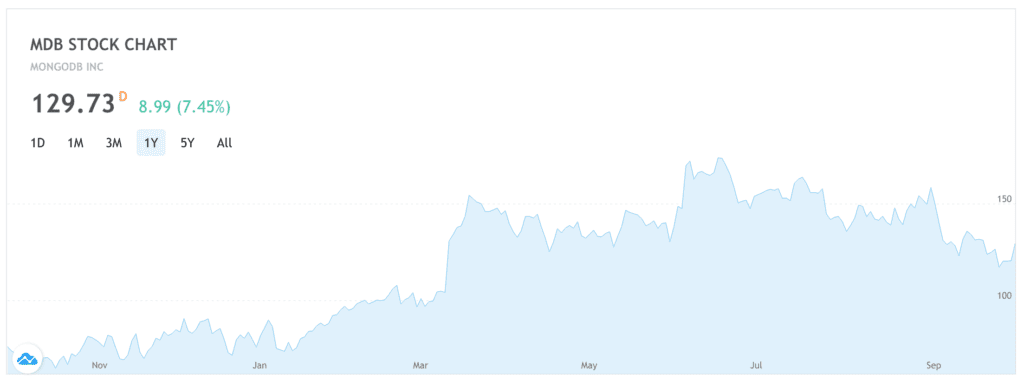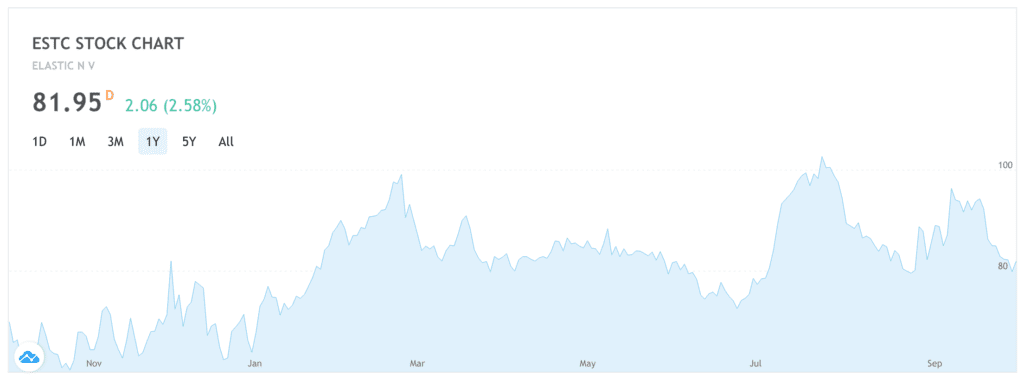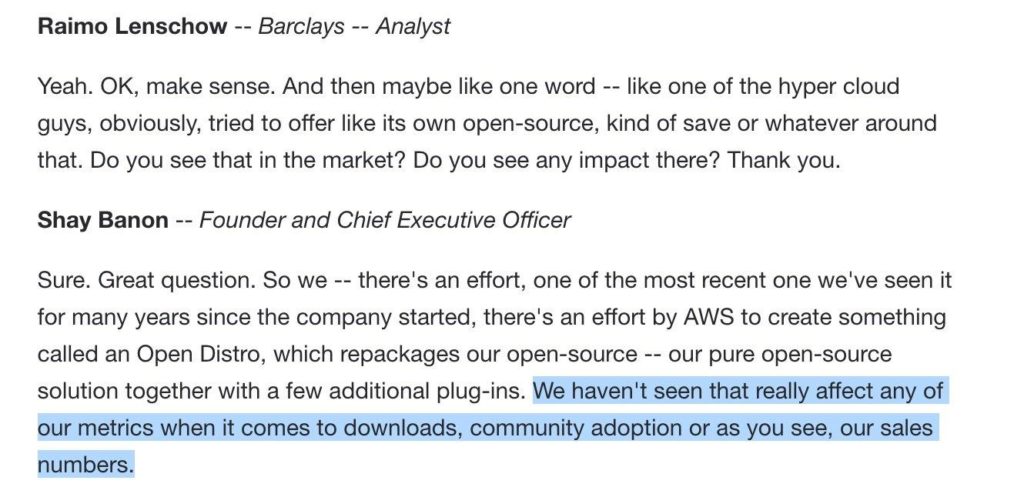What if AWS isn’t the reason your business is cratering into the side of a mountain?
I’m surprised by this headline, given that I originally conceived as this post as a terrific “AWS sucks for the ecosystem” hatchet job.
Unfortunately for me, as I started gathering data points, I discovered that my hypothesis was completely wrong. Rather than doubling down on the stupid and becoming a vaccination protestor, I instead changed my point of view. It didn’t even hurt.
This shift was sparked by news of a lawsuit that Elastic filed against AWS. I’ll spare you the at-length dissection. But, at a glance, Elastic has a compelling case for trademark violation against AWS.
Unfortunately for Elastic, the way they’ve gone about their issues with AWS and the larger ecosystem as a whole lends credence to a view of the company that resembles Oracle, only worse at execution.
This whole mess could have been avoided if AWS had departed from their cherished tradition of “terrible names for awesome products” and simply called it RubberSearch, RubberBandSearch, or Stretchy-Go-Findy.
However, this article isn’t about Elastic, their lawsuit, or their obnoxious commingling of licenses in the same repository/commits as a cunning trap for the unwary. It is instead about “AWS killing open source” being a shit narrative.
You have opinions, I have data
The popular narrative says that AWS enters markets and slaughters the incumbents.
AWS Partners gather in the expo hall at re:Invent during the keynote as if it were AWS re:dWedding, anxiously waiting to see who’s about to get killed.
And realistically, who could blame them? There’s precedent.
Redis Labs Scrapes by with Only Five More Funding Rounds
Redis Labs was hit so hard when ElasticCache for Redis was launched in September 2013 that they were barely able to raise Series A, B, C, D, and E rounds totalling $142 million since then.

(data courtesy of CrunchBase)
Redis went on to announce 4,000 paying customers in 2015 and 14 consecutive quarters of growth in 2019.
Okay, so maybe Redis Labs is an outlier? This success didn’t stop them from whining like assholes and relicensing their code to stave off AWS.
MongoDB Weathers the Storm With a 35% Stock Price Increase
MongoDB has weathered the storm of the 2019 launch of Amazon DocumentDB (with MongoDB compatibility)—just so you know, that’s not a snarky motto; it’s the actual product name, including the parenthetical!—with a 35% improvement in their stock price since the day before DocumentDB was announced.

This is in spite of MongoDB’s CEO’s sniveled statement that “developers are technically savvy enough to distinguish between the real thing and a poor imitation.” Remember, if you’re a shitty developer, you’ll use DocumentDB. Classy. Oh so very classy.
Elastic…Is about the Same as Before
AWS announced their launch of Open Distro for Elasticsearch in March 2019, which caused quite a shitstorm on the internet for very good reasons. Of course, Amazon has had an Elasticsearch-compatible product since October 2015.
But Elastic has since gone public in October 2018, so let’s see how they’ve fared:

Oh. Oh dear. They IPO’d at $70 in 2018 and were trading at $84.38 two days before the Open Distro announcement. They’ve had some highs since then, but nothing lasting.
Perhaps there is some credence to Elastic’s claim that AWS has irreparably harmed their business.

(Elastic’s CEO answering a question from a Barclays analyst on the most recent earnings call.)
Or not…
Well then. I’m sure that sending nasty letters to customers is going to make everything better. Just ask Oracle!
Maybe AWS Isn’t the Problem
AWS insists that their entering a market isn’t a competitive play but is rather a validation of what these companies have built. That sounds like self-serving drivel because that’s exactly what it is.
Unfortunately for my sarcastic intent, it’s also correct. I went looking for companies that AWS has driven out of business, and the closest I could find was “AWS bought them and effectively shuttered their product.”
When companies react to AWS with lawsuits, threats, and conferences devoted to whining about Amazon, it’s sad. When they try to convert to “source-available” licenses that explicitly bar AWS and others from building managed services out of their offerings, it’s hilarious.
Amazon, Google, and Azure are *never* going to license your technology for a first-party offering. They will straight up cleanroom-build a compatible product themselves from scratch before they put their destiny in someone else’s hands.
For an example of this, look at how obnoxiously contentious the Microsoft SQL and Oracle RDS pricing is over in AWS land. I can’t see AWS ever signing up for another round of “another company controls our service’s fate” after this.
Companies that currently aren’t thriving love to blame AWS for their problems. But I don’t think the criticism sticks.
I wish it were otherwise; there’s very little that beats the sense of smug satisfaction I get when talking to AWS execs and can rub their nose in a “you’ve been obnoxious to your customers/ your partners/small children on the street” kind of way.
But sadly for my snark, this isn’t one of those times.





